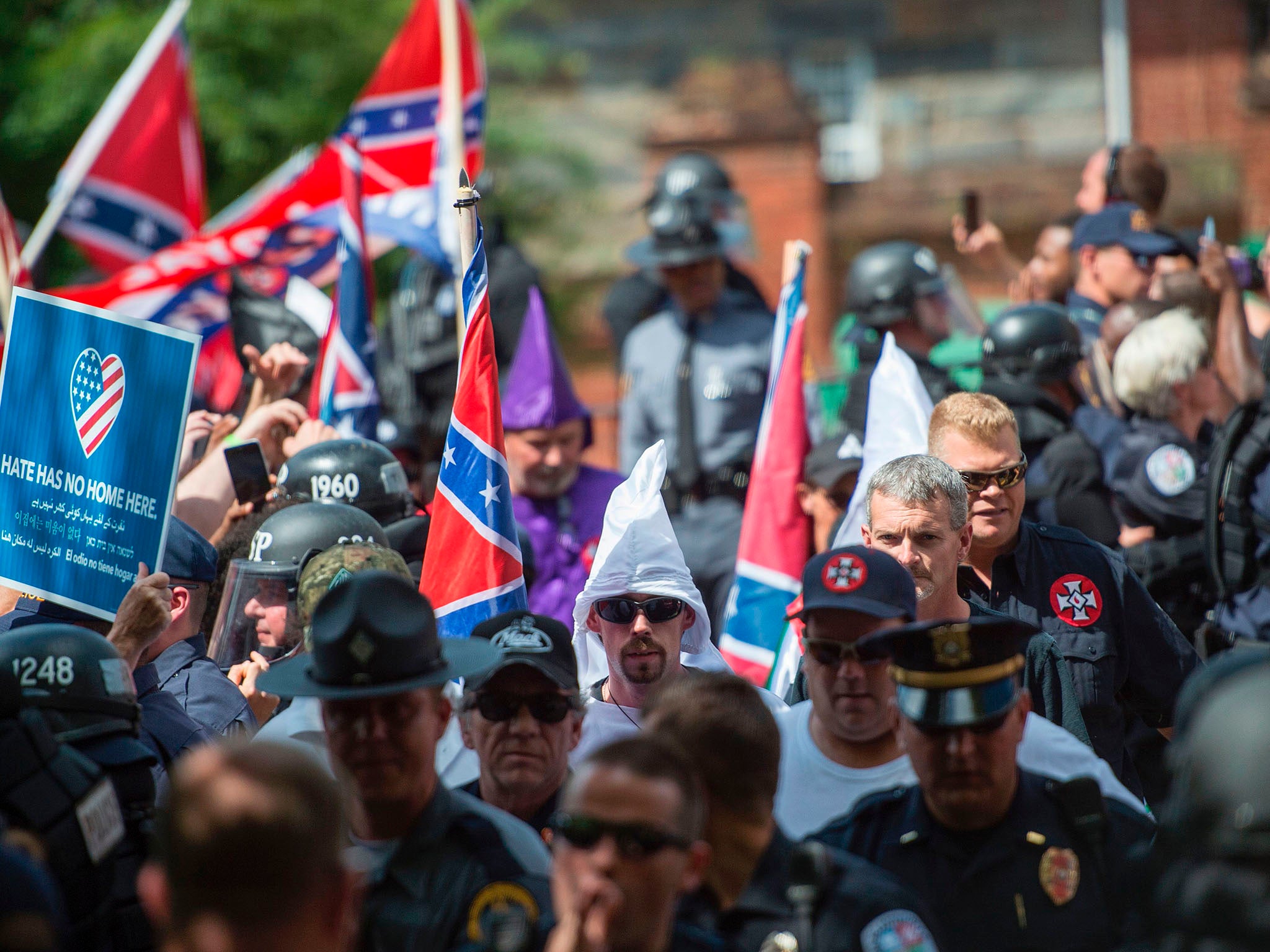Majority of Americans say Trump has encouraged white supremacists
Most voters disapprove of the President's handling of Charlottesville

Your support helps us to tell the story
From reproductive rights to climate change to Big Tech, The Independent is on the ground when the story is developing. Whether it's investigating the financials of Elon Musk's pro-Trump PAC or producing our latest documentary, 'The A Word', which shines a light on the American women fighting for reproductive rights, we know how important it is to parse out the facts from the messaging.
At such a critical moment in US history, we need reporters on the ground. Your donation allows us to keep sending journalists to speak to both sides of the story.
The Independent is trusted by Americans across the entire political spectrum. And unlike many other quality news outlets, we choose not to lock Americans out of our reporting and analysis with paywalls. We believe quality journalism should be available to everyone, paid for by those who can afford it.
Your support makes all the difference.President Donald Trump’s response to the white supremacist rally in Charlottesville, Virginia has received a resounding thumbs down from US voters.
Americans overwhelmingly disapproved, 60 per cent to 32 per cent, of Mr Trump’s handling of the situation, according to a recent Quinnipiac University poll.
Almost 60 per cent of voters said Mr Trump’s decisions and behaviour have encouraged white supremacist groups, while only three per cent say he has discouraged these groups. The majority believe these groups pose a threat to the US.
In the wake of the Charlottesville rally – said to be the largest white supremacist gathering in the US decades – Mr Trump did make scripted remarks condemning white supremacist groups, including neo-Nazis and the KKK. One day later, however, he appeared to walk back those comments.
In a freewheeling press conference at Trump Tower, the President claimed that some “fine people” had attended the rally, defended statues of Confederate generals, and repeated his claim that “both sides” were to blame for the violence at the event.
Despite widespread backlash, Mr Trump defended his comments at a campaign rally this week, calling them "perfect”. The negative response, the President claimed, was engineered by the “fake news” media.
“They only take out anything they can think of, and for the most part, all they do is complain,” he said. “But they don't put on those words. And they don't put on me saying those words."
But it appears Mr Trump has larger problems than his battle with the media: A record number of voters now say that prejudice against minority groups is a problem in America. Half of all voters say such prejudice is a “very serious” problem, while 31 per cent say it is somewhat serious.
More than half of all Americans also say there is too much prejudice in the US overall. Only 40 per cent say there is too much political correctness – one of Mr Trump’s favourite talking points. This margin is the widest it’s been since Quinnipiac first started asking the question.
And while Mr Trump has claimed that the problem of prejudice is not of his creation – nor, charitably, of Barack Obama’s – voters still appear to hold him accountable for it. Sixty-five per cent of voters say the level of hatred and prejudice in the US has increased since his election. Only two per cent say it has gone down.
"Elected on his strength as a deal-maker, but now overwhelmingly considered a divider, President Donald Trump has a big negative job approval rating and low scores on handling racial issues," Tim Malloy, assistant director of the Quinnipiac University Poll, said.
Join our commenting forum
Join thought-provoking conversations, follow other Independent readers and see their replies
Comments